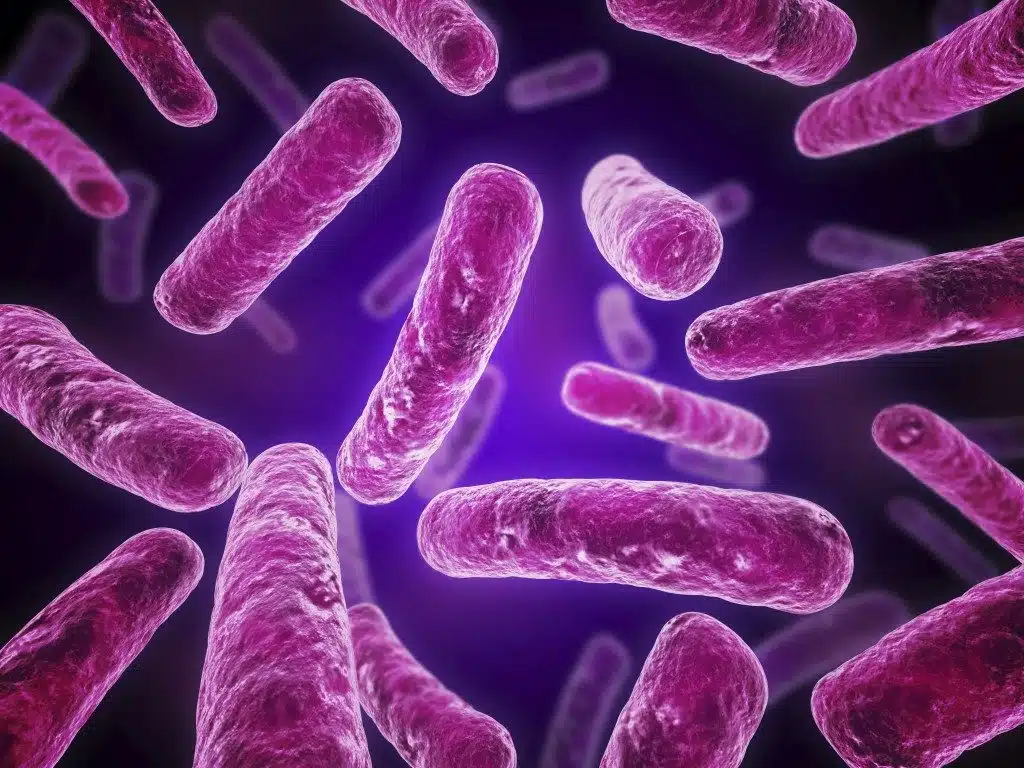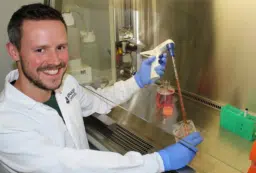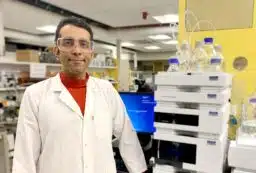
Jaclyn Pearson presenting at Fresh Science. Credit: Tom Rayner
Melbourne researchers have shown how some gut bacteria use a needle-like system, like a syringe, to poke into the cells in our guts and pump in proteins that silence our immune system, leaving it unable to fight these bugs off.
Jaclyn Pearson from the Peter Doherty Institute for Infection and Immunity at the University of Melbourne thinks this improved understanding of how gut bacteria, like Salmonella and E. coli, make us sick could lead to smarter and more effective treatments, and save lives.
Our immune system is complicated. Bacterial infections of the gut kill five to six million kids globally every year. But we still don’t really understand how those bacteria work.
In Australia, we see many thousands of cases of diarrhoea caused by bacteria every year. The current treatment uses antibiotics, which are largely ineffective as these bacteria become resistant. In fact, using antibiotics could actually make patients worse as they kill off the good bacteria in our guts, leaving the disease-causing bacteria to continue thriving.
These bacteria are good at hiding from the immune system. For the first few hours we have no idea that they’re there, until we begin to feel sick and the diarrhoea comes on, which is how the bacteria is then passed on to the next unlucky person.
But Jaclyn’s research in helping to understand how these bacteria make us sick will help scientists to develop new and more effective drugs that target the proteins that the bacteria inject into our cells.
Contact: Jaclyn Pearson, Peter Doherty Institute for Infection and Immunity, the University of Melbourne, 0433 114 065, jaclynp@unimelb.edu.au

Jaclyn Pearson





 Fresh Science is on hold for 2022. We will be back in 2023.
Fresh Science is on hold for 2022. We will be back in 2023.